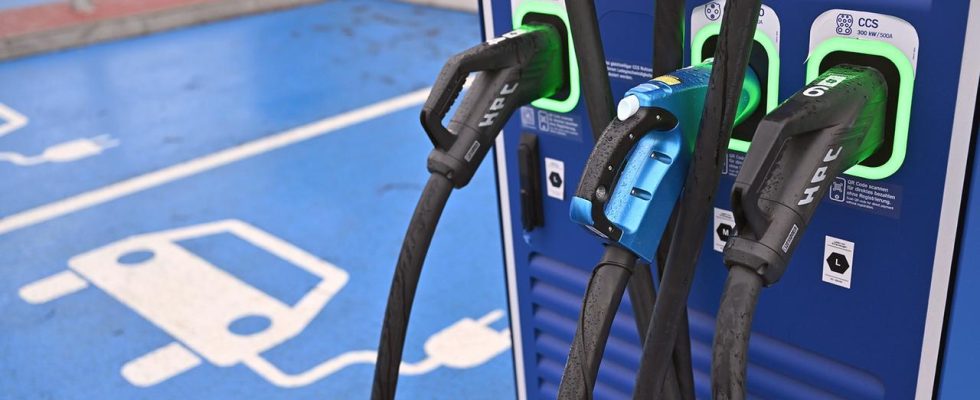Sales of electric cars have recently fallen by almost 30 percent. The sharp decline in sales has also slowed down the entire car market in this country, and manufacturers have even reduced production.
After government funding for commercial electric cars expired, the number of newly registered battery vehicles fell significantly in September. 31,714 electric cars hit the road last month, as the Federal Motor Transport Authority (KBA) announced today. That was 28.6 percent less than in September of the previous year. Their share of all new registrations was around 14 percent – almost six points less than in the previous year. Last August, around one in three newly registered cars was an electric car.
The decline does not come as a surprise to experts. “Business owners had brought forward planned purchases of electric cars on a large scale in August in order to still be able to benefit from government subsidies,” said the mobility expert at the consulting firm EY, Constantin Gall: “Of course, these purchases are now missing.”
In August, sales of electric cars increased by 170 percent because many companies wanted to benefit from government subsidies. According to calculations by management consultancy EY, the drop of around 29 percent in September is the sharpest decline since December 2016 – at that time, new electric registrations fell by 31 percent.
Combustion engines are in demand
Cars with combustion engines sold better last month: petrol cars increased by nine percent compared to the previous year, while sales of diesel cars climbed by around five percent. Hybrid cars were also in demand.
Nevertheless, the increase in sales of gasoline and diesel vehicles could not hide the weak sales of electric cars. The low demand for battery vehicles is also noticeable in the overall development of new registrations: According to the KBA, 224,502 cars were newly registered across all segments in September. That was almost as many as in September of the previous year.
Manufacturers are cutting back on production
Because of the weak demand, manufacturers slowed down their production lines. According to the Association of the Automotive Industry (VDA), 340,500 vehicles in Germany rolled out of manufacturers’ factories in September, eight percent fewer. Of these, 265,500 cars were exported, five percent less than a year ago.
Overall, according to industry information, the passenger car market remains on track and, according to the importers’ association VDIK, is heading for “noticeable growth” this year. The market continues to live primarily from the reduction of the high order backlog, explained association boss Reinhard Zirpel. “We are therefore increasingly concerned about the persistently low order intake,” he added. Especially since the demand for electric vehicles is no longer growing as dynamically as in previous years.
EY car expert Gall expects that the new car market will grow this year, but overall will still remain well below pre-crisis levels. Gall expects that the gap will not be made up in 2024 – especially since there is currently no growth impetus from the electrical segment. In September, car sales were eight percent lower than in the pre-Corona year 2019.

